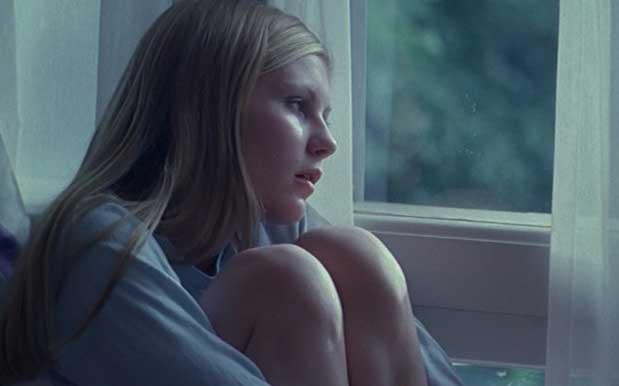
Almost half (45%) of all Aussies will experience a mental illness in their lifetime, one in seven will experience depression and every day at least six Australians die from suicide, with a further thirty people attempting to take their own life. Suicide is the biggest killer of young Australians and takes the lives of more of us than car accidents.
By that reckoning everyone in this country, whether they realise it or not, has been or will be affected by mental illness at some point in their life.
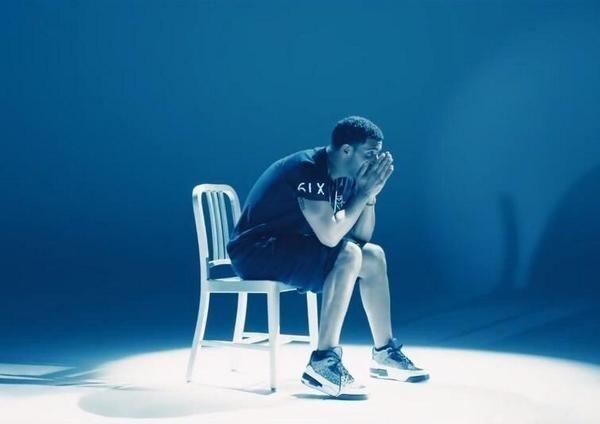

A massive international survey recently found that 50% of all lifetime cases of mental health disorders start by age 14 and 75% by the age of 24. Last year an Australian survey found the things that bum young people out the most are: coping with stress, school or study problems, body image, depression and family conflict, in that order.
The same survey found that young people saw mental health as a more important issue than things like the environment, bullying, education or employment. So, we know we care about dealing with mental health but what next?
WHY DON’T WE TALK ABOUT DEPRESSION AND SUICIDE?
One of the many stories the Propeller Project (an Aussie initiative sharing the stories of young Aussies making a difference in their communities) captured is from Aiden, whose life was touched by depression and the attempted suicide of his best friend, Amelia. Aiden came to realise that for some Aussie kids it seemed easier to take their own lives than it was to open up and talk about what was going on for them. That’s when he started the SwishStart program; to help other kids learn about mental health through the magic of basketball.
We’ve since had a chat to Aiden and one thing he wishes everyone would know about depression and suicide is that “It’s okay not to be okay.”
No doubt talking about depression and suicide is heavy but the alternative is worse, considering there’s still a lot of gaps in what we think/know about it all. When we spoke to Aiden he mentioned the myth that “if you ask people about suicide you put the idea in their head, when in reality years of research suggest the opposite, that if you talk to them about it they’re less likely to suicide.”
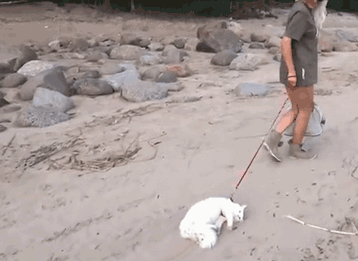
YOU HAPPY YET?
Even people whose life’s work is to study the brain can admit to how little we actually know and that’s coo’ – what an adventure! – but we certainly know enough to recognise that treatment needs to be a combination of medical + psychological help, coupled with the support of those around you, and is most likely going to be an ongoing process. Treatment can’t happen if no one knows what’s going on, though.
Stanford Professor Robert Sapolsky said, in the A+ lecture he gave on the topic, “So there are all sorts of these great made-for-TV movie diseases out there, but when you want to come to the basic meat and potatoes of human medical misery there is nothing out there like depression – it is absolutely crippling, incredibly pervasive and thus important to talk about.”


Long and short of it is: depression is a bummer. At its root it is a temporary inability to feel pleasure – an inability to feel pleasure – and no matter how much we want to be able to ~positive vibes~ it away, sufferers of the disease need and deserve more than that.
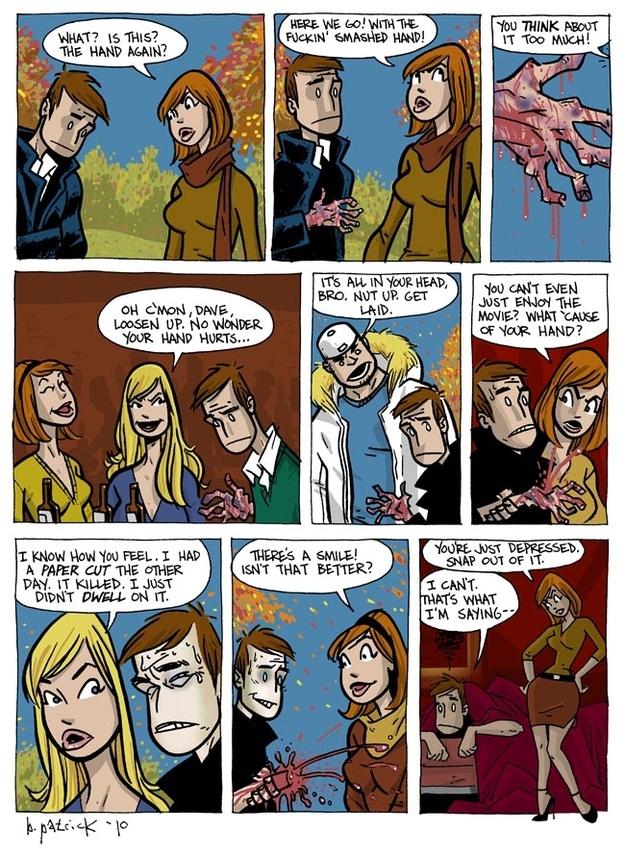
Another person who received a grant and was followed around with a camera as part of the Propeller Project is Tiana. She too was blindsided by the death of a loved one, her best friend Shae, and was subsequently occupied with the torturous ‘What if…?!’ It was through this that she recognised a gap, a gap for people like Shae – who feel suicidal but haven’t spoken to anyone about it – to fall through. How, then, was someone to get help if no one in their life knew they needed it?
It was then that she identified the seven ‘Suicide Warning Signs’, had them signed off on by mental health experts, and decided to print them on business cards and take it upon herself to hand them out in public places. She has since continued with her initiative ‘Alive‘ and whilst she’s currently working on fixing up the site, you can still order the cards for yourself to distribute as you will.
One thing that Tiana found when she started handing out the cards, was just how many people had been affected by suicide. While most had known of someone who had committed suicide the overwhelming belief that it’ll never happen to someone close to you still persisted. “It can really happen to anyone. You don’t expect it to happen to someone around you, though.” She continued: “I was always like ‘oh, it’ll never happen to me, it’ll never happen to any of my friends and so I didn’t know anything about it.”
The Seven Suicide Warning Signs
2. Dramatic changes in personality or mood
3. Changes to eating & sleeping habits
4. A dramatic drop in performance at school or work
5. Feelings of guilt or low self esteem
6. Saying goodbye and giving personal belongings away
7. Withdrawing from friends and family
Joiner proposes that, “All three of these motivations or preconditions must be in place before someone will attempt suicide.”
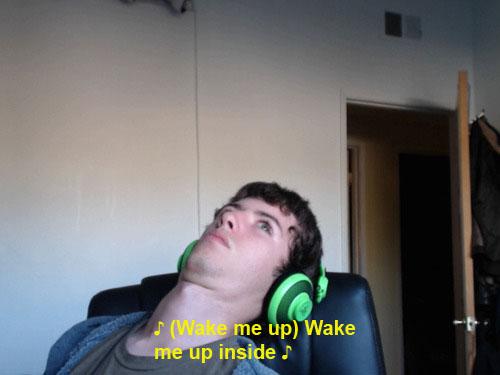
beyondblue was founded in 2000, as a community response to the World Health Organization‘s finding that depression is the leading cause of disability worldwide. We recently spoke with beyondblue’s Deputy CEO Dr Brian Graetz, who told us that their four core messages are Look, Talk, Listen and Seek Help. Obviously those messages are great but they also found that “young people, and adults, don’t really know how to have that conversation if they’re worried and don’t know what they would do if the person they spoke to actually said ‘well, no, I’m not doing that well’…”
We, as a generation, are certainly more comfortable with the idea that mental health is something that needs to be paid as much attention as your physical well-being but it’s still not an easy conversation to have. As a response to this insight, beyondblue developed the Check-in app to ‘help take the fear out of having a conversation with a friend who might be struggling,’ which can be downloaded HERE.
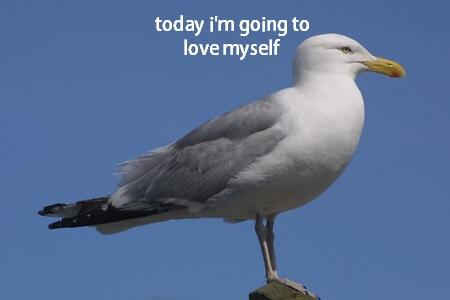
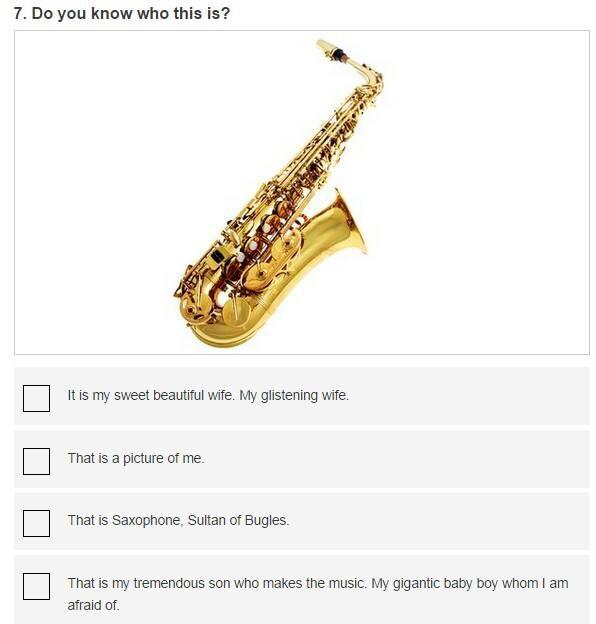
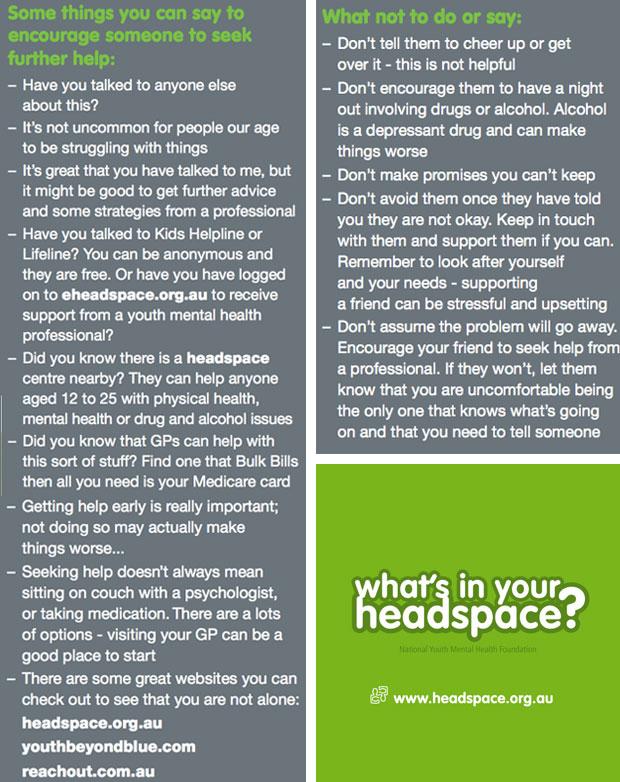
FOR EVERYONE GOING THROUGH THIS
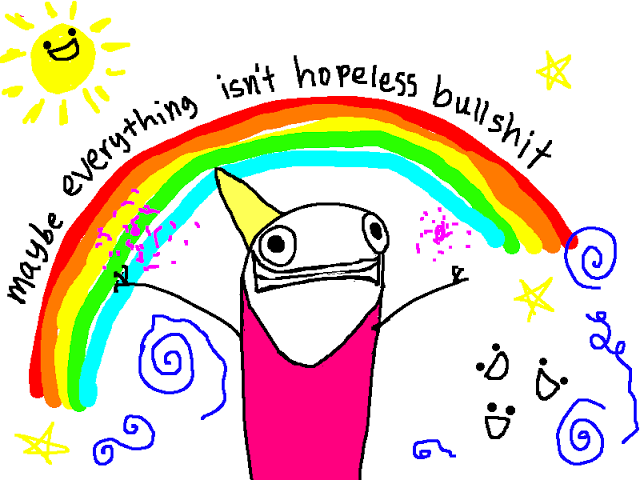
If you or someone else is in an emergency situation, please call 000 immediately.







